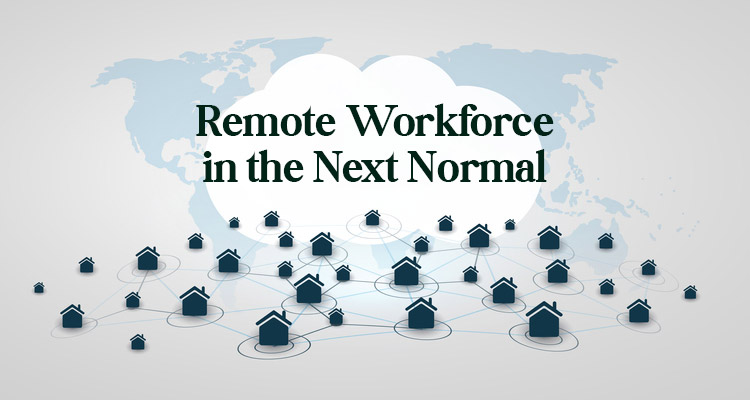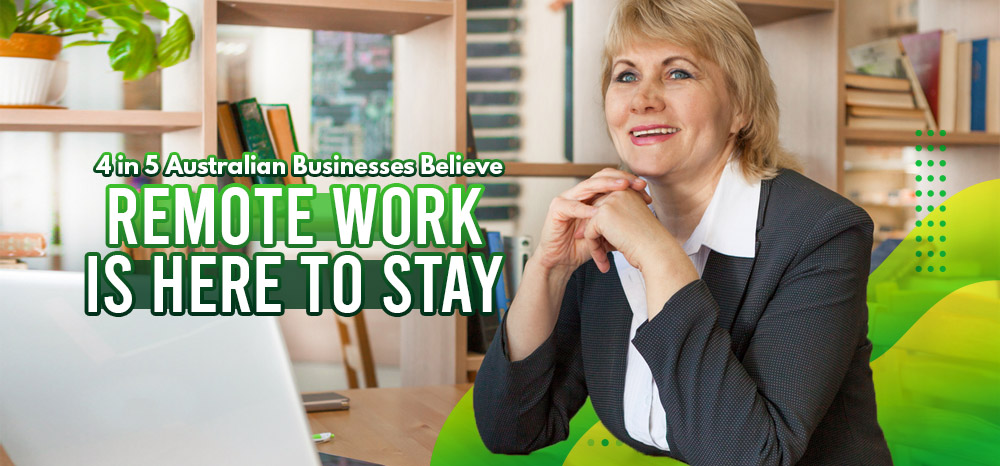Working from home is no longer a trend. It is now the norm.
What we call the “New Normal” is now the “Next Normal.” Vaccinations are on the rise, but many of us still won’t leave our house without masks. While the economy is opening up, many of us prefer to shop online rather than head out to a mall.
Work is no exception. We now have Zoom meetings and virtual commutes instead of face to face conferences and rush hour train rides, respectively. Heck, even dress codes are getting a do-over. (Ever wonder what “business casual” now looks like? Yeah, me too.)
Hence, it’s no longer surprising that many professionals would rather resign than return to a traditional office-based job. As a result, many companies are offering WFH as a new signing bonus. Talk about a win-win.
And if you think that this is all just a fluke, think again.
No Going Back From WFH

This may not be a surprise for many anymore, but remote work is here to stay. The data simply backs it up.
The Melbourne Institute recently conducted a study and found that a whopping 70 percent of Australians prefer the remote setup. The same survey also discovered that the respondents would like to continue working remotely even after the pandemic.
Thus, if you’re planning to ditch renting office space and go fully remote, you’re not alone.
The current e-commerce boom means that companies don’t have to be tied down to a single location, thus presenting more opportunities to expand your business. Hence, growth and expansion can be possible – perhaps faster even -with a remote workforce behind you.
More and More Australian Businesses Are Hiring Remote Working Staff
New data from the Australian Bureau of Statistics suggests that WFH will continue post-COVID, and with good reason. Without remote work, the majority of companies around the world won’t survive as many industries realised during the ensuing lockdowns.
As a result, four out of five Australian businesses are open to the idea of retaining a remote work set-up even if offices reopen nationwide. Whether they’re doing so to retain their key players or to attract those from other companies that won’t do the same will be interesting to observe.
What’s even more surprising is that some industries have also adapted a remote work set-up even if they don’t seem especially suited for it. For example, 19 percent of mining firms permit some of their staff to work remotely – so long as the nature of their work allows it.
The Advantages of a Remote Workforce in the Next Normal

If you’re eager to grow your business, innovation is key. We’re not just talking about churning out quality products either. You’ll also need to innovate when it comes to attracting and retaining skilled employees.
Fortunately, the next normal offers a wide range of options for expanding (or retaining) your workforce.
As with other Australian businesses and companies, you now have access to a broader talent pool. Wouldn’t you want to hire the best remote workers from anywhere?
Good thing you don’t have to figure this whole thing out on your own. In case it gets overwhelming, Remote Staff can assist you – just as we’ve done for other Australian SMEs and entrepreneurs for the last 14 years and counting.
Whether you’ve always wanted to try hiring a remote workforce or are looking to maximise the opportunities in a post-covid, digital economy, our rich talent pool of skilled remote workers from the Philippines can help take your business to new heights.
Call us today or schedule a call back and let’s get started.
Serena has been working remotely and writing content for the better part of the last decade. To date, she's written for Pepper.ph and Mabuhay Magazine, among others, and has churned out more than a thousand articles on everything from The Basics of Stock Market Investing to How to Make Milk Tea-Flavored Taho at home.
- Serena Estrella
- Serena Estrella
- Serena Estrella
- Serena Estrella
- Serena Estrella
- Serena Estrella
- Serena Estrella
- Serena Estrella
- Serena Estrella
- Serena Estrella
- Serena Estrella
- Serena Estrella
- Serena Estrella
- Serena Estrella
- Serena Estrella
- Serena Estrella
- Serena Estrella
- Serena Estrella
- Serena Estrella
- Serena Estrella
- Serena Estrella
- Serena Estrella
- Serena Estrella
- Serena Estrella
- Serena Estrella
- Serena Estrella
- Serena Estrella
- Serena Estrella
- Serena Estrella
- Serena Estrella
- Serena Estrella
- Serena Estrella
- Serena Estrella
- Serena Estrella
- Serena Estrella
- Serena Estrella
- Serena Estrella
- Serena Estrella
- Serena Estrella
- Serena Estrella
- Serena Estrella
- Serena Estrella
- Serena Estrella
- Serena Estrella
- Serena Estrella
- Serena Estrella
- Serena Estrella
- Serena Estrella
- Serena Estrella
- Serena Estrella
- Serena Estrella
- Serena Estrella
- Serena Estrella
- Serena Estrella
- Serena Estrella
- Serena Estrella
- Serena Estrella
- Serena Estrella
- Serena Estrella
- Serena Estrella
- Serena Estrella
- Serena Estrella
- Serena Estrella
- Serena Estrella
- Serena Estrella
- Serena Estrella
- Serena Estrella
- Serena Estrella
- Serena Estrella
- Serena Estrella
- Serena Estrella
- Serena Estrella
- Serena Estrella
- Serena Estrella
- Serena Estrella
- Serena Estrella
- Serena Estrella
- Serena Estrella
- Serena Estrella
- Serena Estrella
- Serena Estrella
- Serena Estrella
- Serena Estrella
- Serena Estrella
- Serena Estrella
- Serena Estrella
- Serena Estrella
- Serena Estrella
- Serena Estrella
- Serena Estrella
- Serena Estrella
- Serena Estrella
- Serena Estrella
- Serena Estrella
- Serena Estrella
- Serena Estrella
- Serena Estrella
- Serena Estrella
- Serena Estrella
- Serena Estrella
- Serena Estrella
- Serena Estrella
- Serena Estrella
- Serena Estrella
- Serena Estrella
- Serena Estrella
- Serena Estrella
- Serena Estrella
- Serena Estrella
- Serena Estrella
- Serena Estrella
- Serena Estrella
- Serena Estrella
- Serena Estrella
- Serena Estrella
- Serena Estrella
- Serena Estrella
- Serena Estrella
- Serena Estrella
- Serena Estrella
- Serena Estrella
- Serena Estrella
- Serena Estrella
- Serena Estrella
- Serena Estrella
- Serena Estrella
- Serena Estrella
- Serena Estrella
- Serena Estrella
- Serena Estrella
- Serena Estrella
- Serena Estrella
- Serena Estrella
- Serena Estrella
- Serena Estrella
- Serena Estrella
- Serena Estrella
- Serena Estrella
- Serena Estrella
- Serena Estrella
- Serena Estrella
- Serena Estrella
- Serena Estrella
- Serena Estrella
- Serena Estrella
- Serena Estrella
- Serena Estrella
- Serena Estrella
- Serena Estrella
- Serena Estrella
- Serena Estrella
- Serena Estrella
- Serena Estrella
- Serena Estrella
- Serena Estrella
- Serena Estrella
- Serena Estrella
- Serena Estrella
- Serena Estrella
- Serena Estrella
- Serena Estrella
- Serena Estrella






















